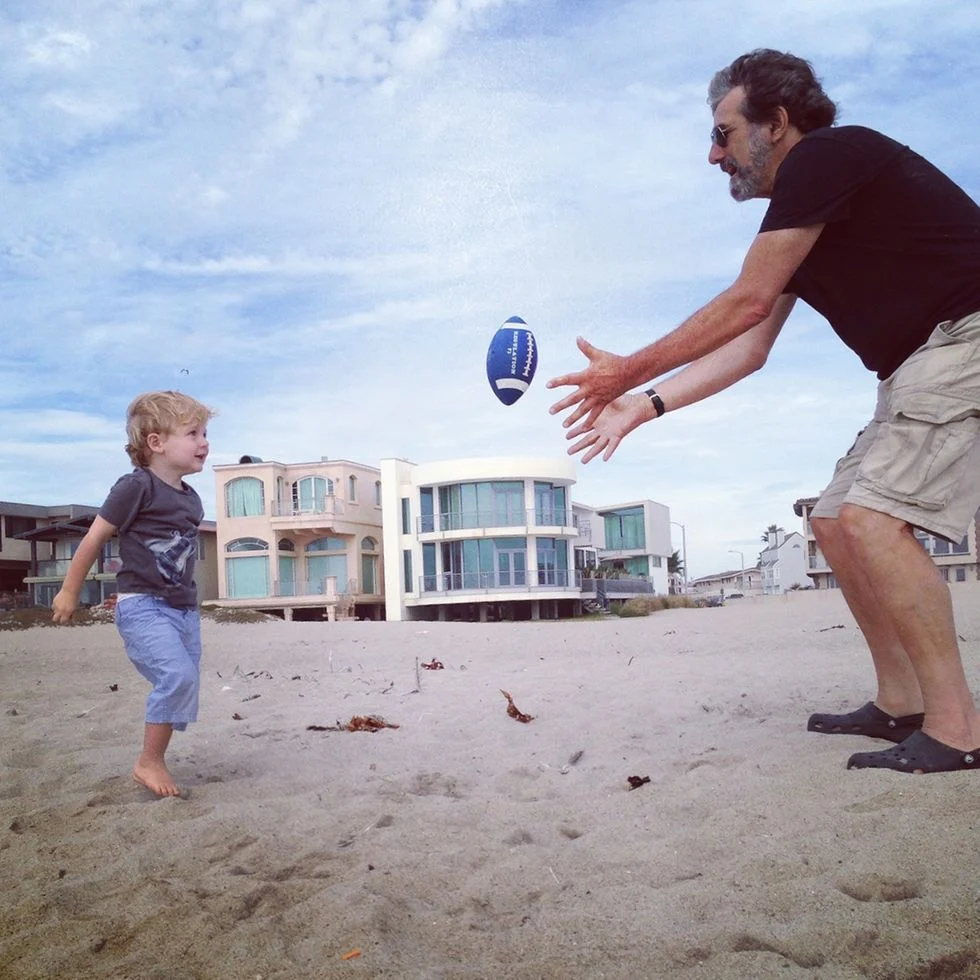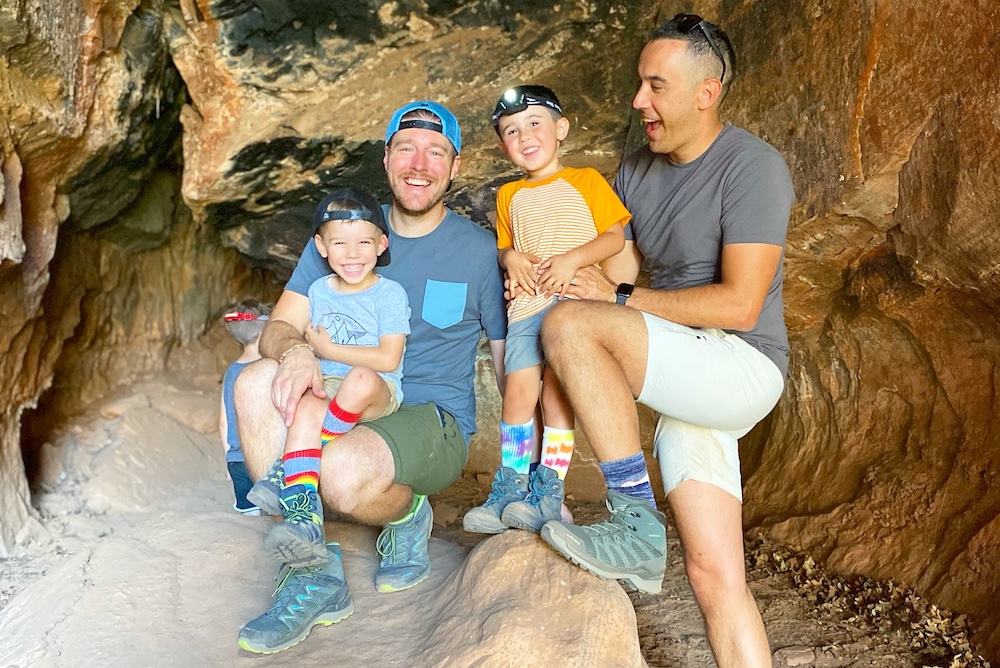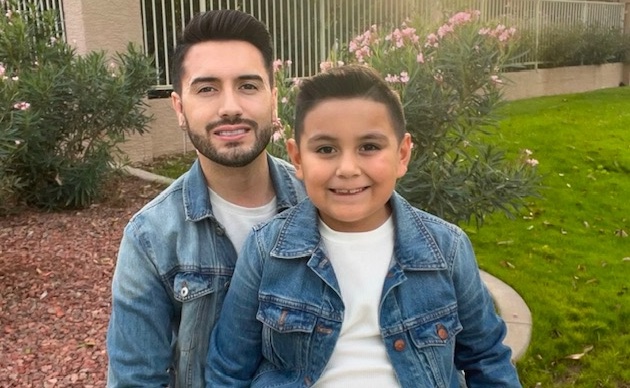It’s one of the many ignorant questions my husband and I are repeatedly asked about our son Maxwell. Before I answer the question, it’s important you understand my tumultuous relationship with sports through the years.
Let’s go back.
It was a typical Fall night in suburban Philadelphia. I was just 12 years old at the time. I finished my homework, set the table for dinner and waited for my father to get home from work. Once he arrived, we ate together as a family. After dinner my dad asked my all-time favorite question. “Who wants to go out for ice cream?” I was in the car faster than a Cher costume change.
Just as my mouth watered for a double scoop of cookies and cream, I noticed we had driven right past our local ice cream parlor. “Where are we going?” I asked. Dad replied, “We just have to make a quick stop first.”
He pulled into a high school parking lot. He said he had to drop something off and told me to come with him. The scent and sounds of embarrassment and inadequacy ricocheted through the halls, which could only mean one thing — we were headed straight towards the gymnasium. And then, out of nowhere, a sign. Literally. I walked into a sign that read Basketball Signups. I couldn’t believe my dad tricked me, using ice cream as a desperate ploy to get me to sign up for basketball. The moments that ensued included an ultimatum and a few tears. In the end, I became an official player on the Valley AA Vikings Basketball Team. And I wasn’t happy about it.
Despite my reluctance — and like my earlier stint playing on a soccer team by way of a trip to Dunkin’ Donuts — I turned out to be a pretty solid athlete. However, wanting to play sports and having a natural athletic ability are two very different things.
At the time, I couldn’t understand why I was being forced in to sports. But as a 36-year-old father, I’m able to grasp my father’s intentions. Sorta. I now realize how sports can help build confidence, teach self-discipline, perseverance, teamwork and accountability. These are lessons of paramount importance that parallel all aspects of life. If you work hard at something, you will excel at it. And for most kids, participating in sports allows them to learn these important life lessons within the context of something they enjoy. But what about the kids who don’t naturally gravitate towards sports? The ones who don’t enjoy it?
While they say team-based sports give kids a sense of belonging, they can also have the opposite effect, making you feel excluded, isolated and rejected. All the intended benefits of sports can quickly be lost when a parent puts too much pressure on a child. My childhood experiences taught me to not force my son to do anything extracurricular he doesn’t want to do. Instead, we opt to introduce Max to all types of activities and see what he gravitates towards.
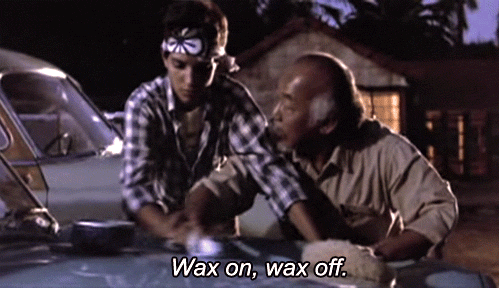
When he wanted to play soccer, we signed him up for soccer. Then he got bored and wanted to try karate. No problem. We enrolled him in karate class. He waxed on and off all the way to a yellow belt. When he expressed interest in swimming, we got him a great instructor. Now he swims better than Nemo. If Max shows interest in baseball, basketball, football, ice-skating, football, ballroom dancing or even hunting, we’ll support him 100%. (Well, maybe not hunting.) Just because we’re not personally interested in these things, it doesn’t mean that we can’t or won’t support his interests.
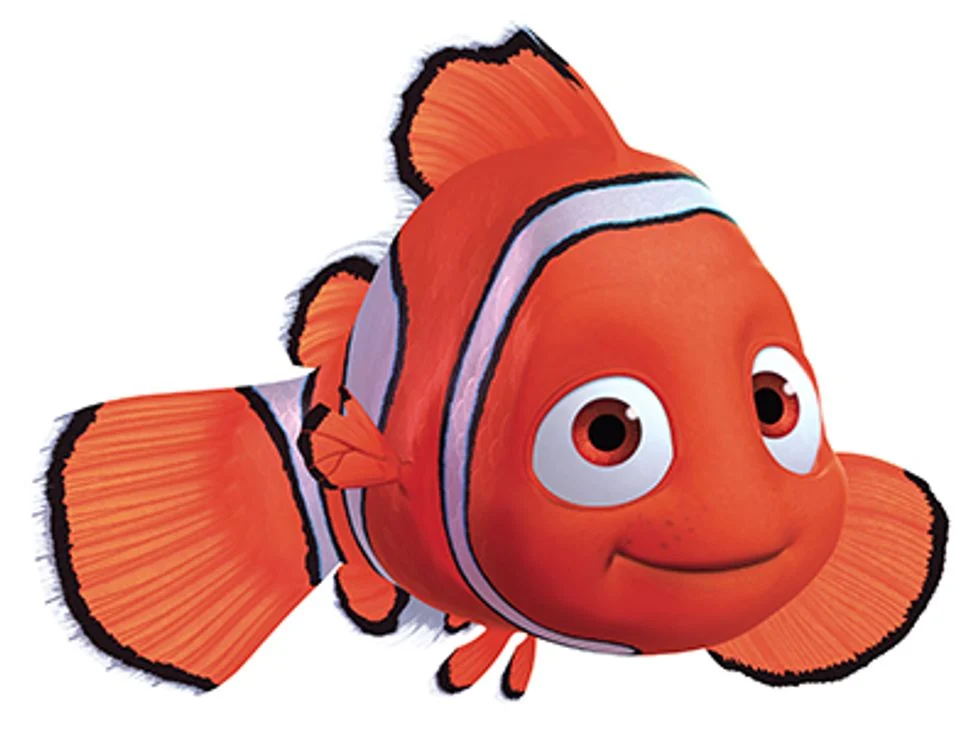
Do people ask single moms who’s going to teach their sons to throw? Do heterosexual Dads have to personally enjoy playing with Frozen princess dolls in order to play with their daughters? No, right? So why are we constantly asked ridiculous questions based on these dated gender stereotypes?
“What are you guys gonna do when Max wants to join little league?”
“Maybe his uncle can take Max to a Lakers game…”
“Who’s going take Max camping?”
“Who’s going to teach Max how to fight?”
I know these questions aren’t mean-spirited. But the subtext suggests that, as two gay men — who aren’t personally interested in sports — we’re somehow ill-equipped to raise a boy because we lack the masculinity and toughness required to raise boys.
Just a few weeks ago my father (see photo at top, throwing a football with Max) was visiting our home in Los Angeles over Thanksgiving. I watched in delight as he and my son Maxwell bonded over toy trucks and racecars. I could see in my father’s eyes how much joy his youngest grandson brought him. It warmed my heart. But then, with just one innocent question, I was instantly transported back to my insecure 12-year-old self.
“Ever throw around a football with Max?”
“Sure.”
Sounding surprised, he added, “Oh, yeah, you guys teach him how to throw?”
My internal monolog shouted: “Yes, believe it or not, Dad, we taught him how to throw. But not until we forced him to take ballet lessons, get manicures and become proficient in flower arranging!”
But in reality, I simply shrugged and said… “Yup.”
I know my dad meant no harm. He is, and has always been, a fiercely supportive and loving father who has always been 100% in my corner. The thing is though, from the day our son was born, we’ve faced these age-old stereotypes regarding the interests and instincts of gay men. It’s as if we’re better suited to accommodate the interests and activities of a daughter. You know… more inclined to play dress-up with Barbie.
As moronic as it sounds, a lot of people think this way. But it’s time for some enlightenment!
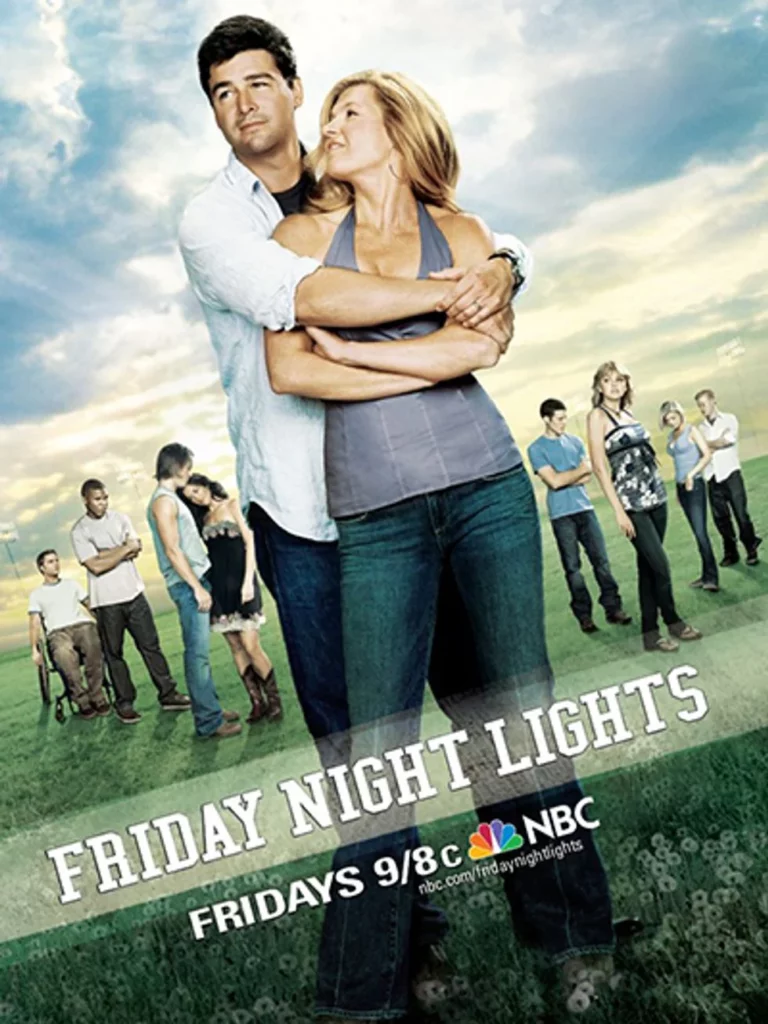
Being gay didn’t stop me from becoming an award-winning copywriter for DirecTV’s NFL Sunday Ticket for several years. Or from doing all the advertising for the acclaimed football drama “Friday Night Lights.” It doesn’t prevent me from playing touch football with friends every Thanksgiving. Or from lifting weights at the gym while listening to Whitney’s greatest hits. It didn’t stop me from watching — and groaning about — the Eagles, the Phillies, the 76ers and the Flyers with my brothers. And it certainly won’t prevent my teaching my son how to throw a ball.
So the next time you want to prejudge me or the style in which I parent, remember that my husband and I are raising an impressionable child, and his curiosity doesn’t have to be instilled or taught — it just needs to be properly encouraged and allowed to blossom. My job as a father is to introduce this malleable little dude to as many options as possible so that he can discover his strengths, his likes, his dislikes and grow into a good person.
The last thing I want is for my son to be restricted or pigeonholed by archaic dictates of society. In fact, research shows that children of gay dads are less bound by gender stereotypes than those raised in straight households. For them, it’s not about ‘boy things’ or ‘girl things.’ It’s just about things. Imagine that.
So back to the question at hand.
Who’s going to teach him to throw?
His two dads.
Any other stupid questions I can answer for you?
To help find your path to fatherhood through gay adoption, surrogacy or foster care check out the GWK Academy.

